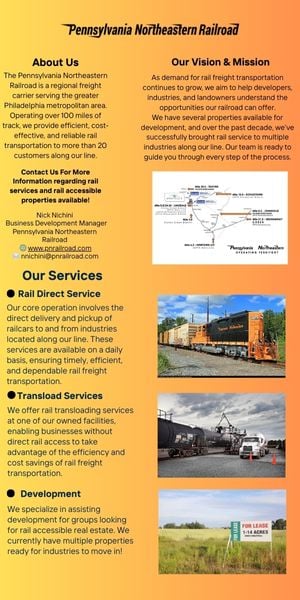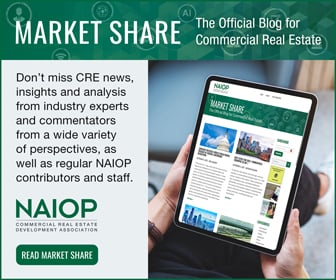
Public Records Issues and Solutions in Data Center Deals
Data center developers can take steps to protect sensitive information while complying with public records laws.
Data centers are critical infrastructure in the digital age. Developing these facilities, whether they are hyperscale, co-location or data mining projects, involves complex negotiations and substantial investment.
One key challenge is balancing confidentiality with the transparency required by public records laws while the developer works with local governments to lay the groundwork for the data center project on issues such as electricity, water and tax incentives. Data center companies may need to keep certain information confidential for a variety of reasons, such as to avoid tipping off competitors about project sites under consideration or affecting negotiations for tax incentives. However, these confidentiality goals may directly conflict with public records requirements.
Communications Strategies
Companies developing or operating data centers should have a comprehensive communications strategy to preserve confidentiality when necessary while engaging with community and government stakeholders. In some cases, filtering written communications through legal counsel or another outside adviser can shield the company’s identity. Even when a company is not shielding its identity, having only one or two key communicators can help ensure that what is provided to public stakeholders is consistent with the company’s communications strategy, particularly with respect to sensitive matters such as use of resources, neighborhood concerns and tax incentives.
Understanding the counterparty is crucial in managing confidentiality in data center transactions and should be part of an initial communications strategy. For example, if a data center developer is seeking certain electricity or water usage agreement terms from a local government or public utility, it is essential for the company to identify which entity will need to receive project information and whether that party is subject to public records laws. Once that entity is identified, it is time to review statutory and administrative provisions governing public records in the jurisdiction where the data center is being developed, including specific exemptions that may apply and any laws specific to the type of public entity involved. Often, a good starting place for this research is a public records or sunshine law manual published by a state agency, such as A Guide to the Massachusetts Public Records Law, Washington state’s Open Government Resource Guide and the Arizona Ombudsman-Citizens’ Aide Public Records Law Booklet. Individual public entities often have their own public records policies that also should be reviewed.
Reducing Public Records Disclosures
Not disclosing sensitive information is one of the most effective tools for avoiding public records problems. To this end, data center companies should consider various strategies to reduce disclosures, including:
- Visually reviewing documents, either in person or during video calls, without providing copies.
- Making compliance information available for inspection but not for copying to allow the public entity to review records relevant to the project without creating a public record.
- Redacting sensitive information.
- Using a special purpose entity (SPE) or a third party to provide information on a client-anonymous basis.
These approaches can help data center companies avoid the disclosure of sensitive electricity and water usage information, for example, which can be crucial for maintaining competitive standing in the industry.
NDAs: Public Sector Limitations
Data center projects require confidentiality to protect sensitive business information such as a company’s identity during initial tax incentive negotiations or utility usage information once the project becomes operational. Nondisclosure agreements (NDAs) are commonly used to safeguard this type of information in the private sector, but they can be more limited when used with public entities.
There are several key questions to consider for NDAs involving public entities:
Does the NDA comply with applicable public records laws? For example, if state law does not provide an exemption for the disclosure of compliance reports associated with tax incentives, the NDA should not require that such reports be kept confidential. On the other hand, if state law exempts information about sensitive infrastructure from public records disclosures, an NDA can require the public entity to keep such information confidential.
What is the scope of the NDA? For example, does a trade secret or business and financial records exemption in state law extend to water usage? If so, it may be ideal to identify water usage as exempt from disclosure.
Is the NDA a public record? Ironically, NDAs with public entities usually are public records. If that is the case, it is important to consider whether the NDA can be assignable from an initial party (e.g., the landowner) to the ultimate party-in-interest or whether an outside service provider can enter into the NDA on behalf of the service provider’s client. Another consideration is whether companies can use a project name or SPE to protect their identity.
Does the NDA require the public entity to give the company notice of, and an opportunity to respond to, public record requests? This type of provision provides an opportunity to defend against records requests that seek the disclosure of information that the company considers to be a trade secret. Inclusion of this provision is especially important because determining what information is a trade secret is sometimes ambiguous, and the public entity and the data center company may disagree on this point in the future.
NDAs may be able to resemble a standard, commercial NDA if a separate nongovernmental organization (NGO), such as a local chamber of commerce, is negotiating aspects of a data center deal on behalf of the public entity. These NDAs should include the correct parties, properly define confidential information, establish the scope and duration of confidentiality, and ensure that information shared with a public entity remains confidential to the maximum extent allowed under applicable law. Caution is necessary when working with NGOs because, depending on the jurisdiction, these organizations may still be treated as public entities for purposes of a state’s public records laws.
Balancing Act
Balancing confidentiality goals with transparency requirements in data center transactions is a complex but manageable task. By employing strategic approaches, reviewing relevant laws, negotiating effective NDAs and understanding the counterparty, data center developers can maintain their competitive advantage by protecting sensitive information while still complying with public records laws.
Eli F. Redfern is an associate attorney and Sean P. Byrne is of counsel in the Columbus, Ohio, office of Vorys, Sater, Seymour and Pease LLP, where they are part of the firm’s national economic development incentives practice.





